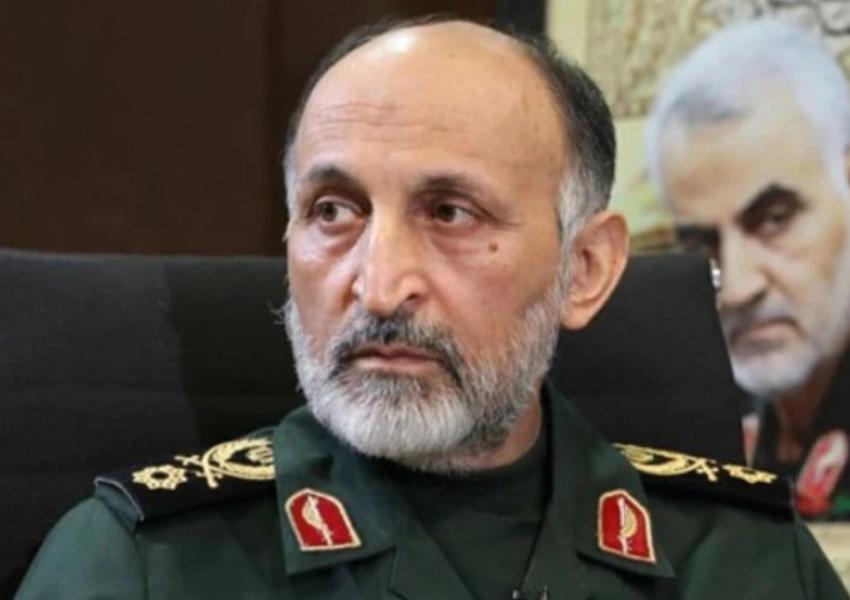
Iran's Guards Offer Contradictory Reasons For Death Of Key General
Contradictory statements by the Islamic Revolution Guards Corps (IRGC) and others have fed uncertainty about the cause of the death at 65 of Qods (Quds) Force Brigadier General Mohammad Hejazi.
On Sunday evening, the IRGC information office announced that the long-time intelligence commander had died of a heart attack. On Monday, the spokesman for the Guards Ramazan Sharif denied Hejazi had died of a heart attack but from years of tough missions, the effects of Covid-19 contracted a few months ago, and from injuries caused by chemical weapons used by Iraq in the 1980-88 Iran-Iraq war. Sharif suggested the long-term damage of the chemical weapons was the main cause of Hejazi’s death.
The Qods Force oversees the IRGC’s foreign operations. Hejazi helped lead its expeditionary forces and frequently shuttled between Iraq, Lebanon, and Syria.
Opinions on the cause of Hejazi’s death were offered on social media. Mohammad Mehdi Hemmat, son of an Iran-Iraq war veteran, tweeted that Hejazi’s demise “was not and is not a heart attack.” Without elaborating, he called Hejazi “a martyr” who had passed on the birthday of Supreme Leader Ali Khamenei.
A few journalists tweeted that the IRGC general had died of Covid-19. Khamenei praised Hejazi in a message of condolence, saying he had spent a life of jihad “with a heart full of true belief and [had] served Islam and the Revolution.”
Born in 1956 in the city of Esfahan, Hejazi joined the Guard after the 1979 Islamic Revolution and between 1997 and 2007 led the paramilitary Basij volunteer corps − a tenure that saw the force transform into a pillar of the Islamic regime’s security and political apparatus. He also served as deputy chief of a service helping the research and industrial arm of Iran’s armed forces.
Hejazi became deputy commander of the Qods Force after its commander Qasem Soleimani was killed by a US drone strike in Baghdad on January 3, 2020 and Esmail Ghaani (Qaani) was promoted to replace Soleimani.
In 2009, following the disputed presidential election and mass protests, Hejazi commanded Tehran’s IRGC Sarollah unit, which played a major role in suppressing mass demonstrations. This landed him in 2011 on a ‘human rights’ sanctions list of the European Union.
Hejazi’s death is a second blow for the IRGC after Soleimani’s loss last year. Already, some observers believe that IRGC’s Qods Force has become weaker after Soleimani.
Hejazi was the most senior Iranian officer to be a theater commander in Syria, where Iran has maintained a military presence since the early stages of the civil war. Prior to that, he was regularly in Lebanon, coordinating with Hezbollah on behalf of the Islamic Republic. He was a key figure in arming the Lebanese Shiite group, which has been allied to Iran since early 1980s.








